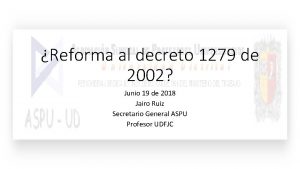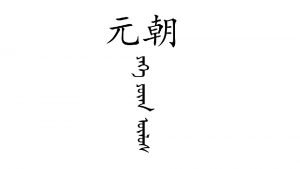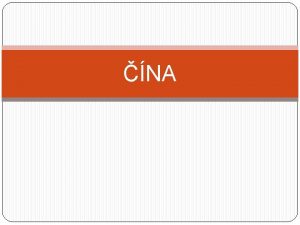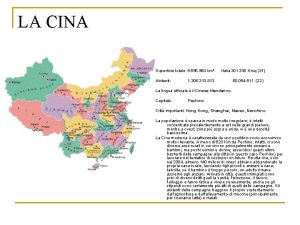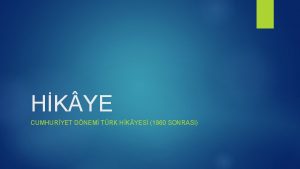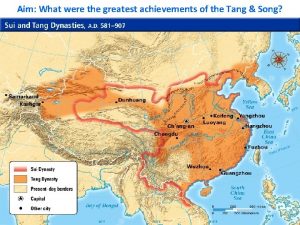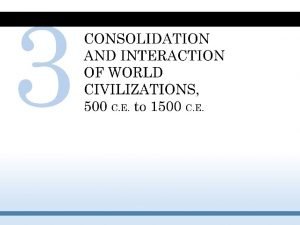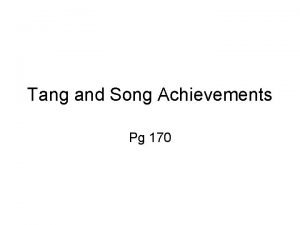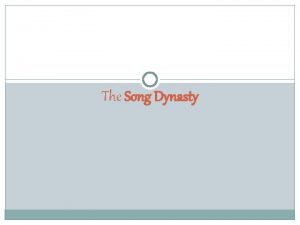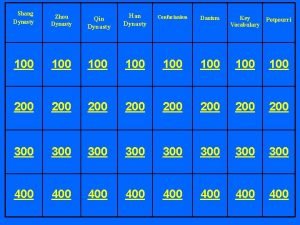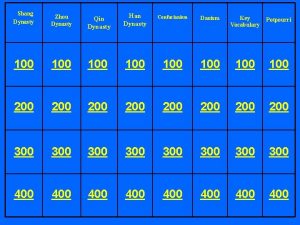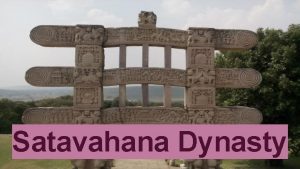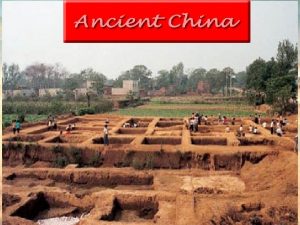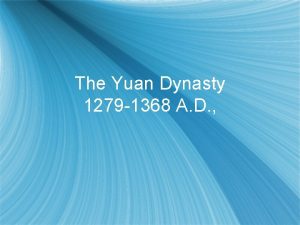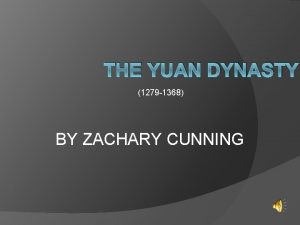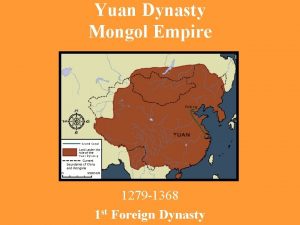Song Dynasty A D 960 1279 Song Dynasty












- Slides: 12

Song Dynasty A. D. 960 - 1279

Song Dynasty n n In A. D. 960 one of the Tang generals declared himself emperor and set up the Song dynasty. This was a time of prosperity and cultural achievement.

Problems in Song Dynasty Song rulers did not have enough soldiers to control the large empire. n Tibet broke away, and nomads took over much of northern China. n The capital was moved south to Hangzhou near the Chang Jiang (Yangtze) delta. n

Hangzhou

Buddhism in China n n n During the previous dynasty, the Tang, rulers were not Buddhist, but allowed Buddhism to be practiced in China. Many Buddhists became monks and nuns. They lived in monasteries were they meditated and worshipped.

Buddhist Temples n ran schools n provide rooms and food for travelers n monks served as bankers n provided medical care

Buddhist monk and monastery

Buddhist Rock Temples

Neo Confucianism n n During the end of the Tang dynasty and the beginning of the Song dynasty, many Chinese felt that Buddhist monks and nuns weakened the respect for family. (Because they could not marry) New Confucianism was created, to reduce Buddhism’s popularity. Confucianism became more than a system of rules to follow, like that of Buddhism. It became a religion about doing things to make society better.

Scholar-Officials n n n The civil service exams used in the Tang dynasty were reinstated during the Song and provided a merit system on which people were accepted for what they can do and not personal wealth or contacts. The test were very difficult and only one in five passed the tests. Those who failed were usually given jobs helping officials or teaching others.

Scholar Officials Strict rules set the scholar officials apart from society. n One rule was that they could not do any physical work. n Hands were for painting or writing, not physical work. n

